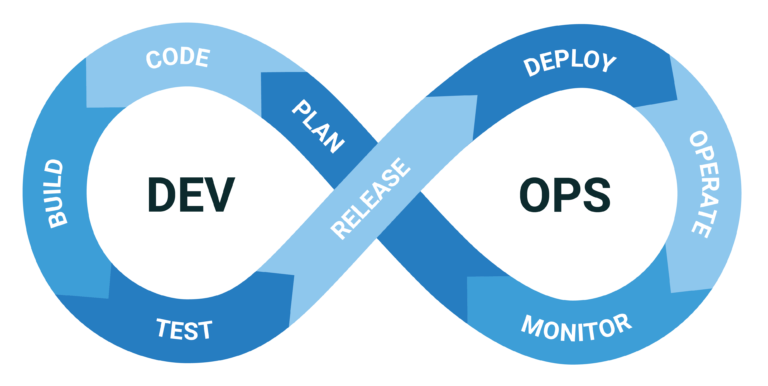
DevOps
DevOps is a set of practices and cultural philosophies that aim to improve collaboration, communication, and integration between software development (Dev) and IT operations (Ops) teams. The primary goal of DevOps is to enhance the efficiency, speed, and quality of software delivery by breaking down silos, automating processes, and fostering a culture of continuous integration, continuous delivery, and continuous deployment (CI/CD).
Key principles and components of DevOps include:
Collaboration and Communication: DevOps emphasizes teamwork, collaboration, and open communication between developers, operations teams, quality assurance (QA), and other stakeholders involved in the software development lifecycle (SDLC).
Automation: Automation is central to DevOps practices. It involves using tools and scripts to automate repetitive tasks such as code builds, testing, deployments, configuration management, and infrastructure provisioning. Tools like Jenkins, GitLab CI/CD, Travis CI, and Azure DevOps facilitate automation in various stages of the SDLC.
Continuous Integration (CI): CI involves integrating code changes into a shared repository frequently, usually several times a day. Automated builds and tests are triggered upon code commits to ensure that changes do not introduce defects or conflicts with the existing codebase.
Continuous Delivery (CD): CD extends CI by automating the process of deploying tested code to production or staging environments. It ensures that software is always in a deployable state and can be released to users at any time.
Infrastructure as Code (IaC): IaC involves managing and provisioning infrastructure (servers, networks, storage) through code and configuration files rather than manual processes. Tools like Terraform, Ansible, and Chef enable the automation of infrastructure setup and configuration.
Monitoring and Feedback: DevOps promotes continuous monitoring of applications and infrastructure to identify issues, gather performance metrics, and obtain feedback. Tools like Prometheus, Grafana, ELK Stack (Elasticsearch, Logstash, Kibana), and New Relic assist in monitoring and observability.
Security Integration: DevSecOps integrates security practices into the DevOps workflow, focusing on security early in the development cycle. It involves automated security checks, vulnerability scanning, and implementing security measures across the SDLC.
Culture and Mindset: DevOps is not just about tools and processes; it's a cultural shift that encourages collaboration, shared responsibility, and a mindset of continuous improvement and learning.
Adopting DevOps practices results in faster delivery of high-quality software, increased agility, improved reliability, reduced deployment failures, and better alignment between development and operations teams. Organizations embracing DevOps principles can achieve faster innovation, better customer satisfaction, and a competitive edge in the rapidly evolving technology landscape.
our address
32, Preeti Enclave Shimla Bypass, Saharanpur Rd, near ICICI Bank, Chowk, Dehradun, Uttarakhand 248001
Location Delhi
H 82 First Floor, Opposite Bengali Sweet Center, South Ex 1, Delhi, 110049
Contact way
info@baudhyantram.com
+91 7900899996
Opening Houres
Mon - Sat(8.00am - 6.00pm)
Sunday - Closed






